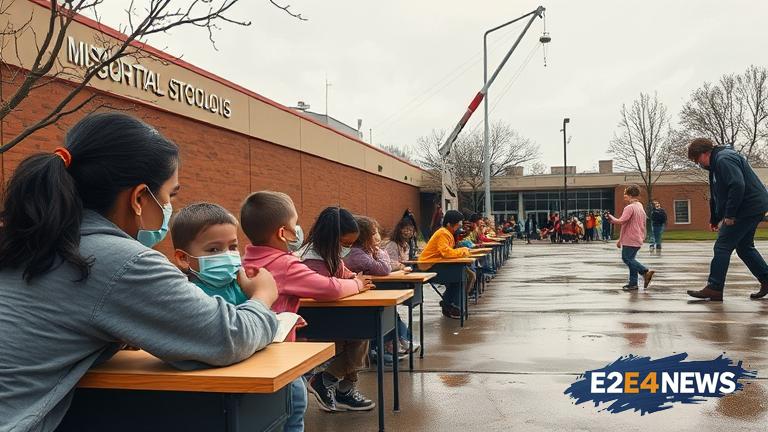The state of Missouri is grappling with a significant challenge in its education system, as over 800 students are in need of extra support. This staggering number has raised concerns among educators, policymakers, and parents, who are calling for immediate action to address the issue. The students in question are struggling with various challenges, including learning disabilities, behavioral problems, and emotional difficulties. As a result, they require specialized attention and resources to help them succeed academically and personally. However, many schools in Missouri are ill-equipped to provide the necessary support, due to limited funding, inadequate staffing, and insufficient training. This has led to a shortage of specialized services, such as counseling, therapy, and tutoring, which are essential for these students’ development. The consequences of inaction could be severe, as these students may fall further behind their peers, leading to decreased academic achievement, lower graduation rates, and reduced opportunities for future success. Furthermore, the lack of support can also have long-term effects on the students’ mental health, social skills, and overall well-being. In response to this crisis, educators and advocates are urging the state government to increase funding for special education programs, hire more qualified staff, and provide ongoing training and resources for teachers. They also recommend implementing evidence-based interventions, such as individualized learning plans, behavioral therapy, and social skills training. Additionally, there is a need for greater collaboration between schools, families, and community organizations to ensure that these students receive comprehensive support. The Missouri Department of Education has acknowledged the issue and is working to develop strategies to address the shortage of support services. However, more needs to be done to address the root causes of the problem and provide sustainable solutions. The state’s education system must prioritize the needs of these vulnerable students and provide them with the necessary resources to thrive. This will require a concerted effort from all stakeholders, including policymakers, educators, families, and community leaders. By working together, Missouri can ensure that all students, regardless of their challenges, have access to a high-quality education and the support they need to succeed. The future of these students and the state’s education system depends on it. In conclusion, the crisis facing Missouri’s schools is a complex issue that requires immediate attention and action. By providing additional support and resources, the state can help these students overcome their challenges and achieve their full potential. It is essential that policymakers, educators, and families work together to address this issue and ensure that all students in Missouri have access to a world-class education. The state’s education system must be equipped to meet the diverse needs of its students, and this requires a significant investment in special education programs, staffing, and resources. Only then can Missouri’s schools provide the necessary support for these students to succeed and thrive. The state’s reputation as a leader in education is at stake, and it is imperative that action is taken to address this crisis. The consequences of inaction will be far-reaching and devastating, not only for the students but also for the state’s economy and society as a whole. Therefore, it is essential that Missouri’s policymakers and educators take immediate action to address the shortage of support services and provide these students with the resources they need to succeed.
